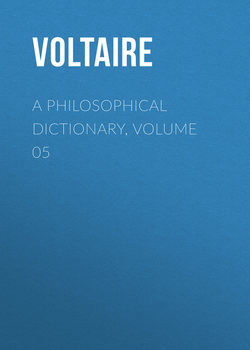Читать книгу A Philosophical Dictionary, Volume 05 - Voltaire, Вольтер - Страница 2
FANCY
ОглавлениеFancy formerly signified imagination, and the term was used simply to express that faculty of the soul which receives sensible objects.
Descartes and Gassendi, and all the philosophers of their day, say that "the form or images of things are painted in the fancy." But the greater part of abstract terms are, in the course of time, received in a sense different from their original one, like tools which industry applies to new purposes.
Fancy, at present, means "a particular desire, a transient taste"; he has a fancy for going to China; his fancy for gaming and dancing has passed away. An artist paints a fancy portrait, a portrait not taken from any model. To have fancies is to have extraordinary tastes, but of brief duration. Fancy, in this sense, falls a little short of oddity (bizarrerie) and caprice.
Caprice may express "a sudden and unreasonable disgust." He had a fancy for music, and capriciously became disgusted with it. Whimsicality gives an idea of inconsistency and bad taste, which fancy does not; he had a fancy for building, but he constructed his house in a whimsical taste.
There are shades of distinction between having fancies and being fantastic; the fantastic is much nearer to the capricious and the whimsical. The word "fantastic" expresses a character unequal and abrupt. The idea of charming or pleasant is excluded from it; whereas there are agreeable fancies.
We sometimes hear used in conversation "odd fancies" (des fantasies musquées); but the expression was never understood to mean what the "Dictionary of Trévoux" supposes – "The whims of men of superior rank which one must not venture to condemn;" on the contrary, that expression is used for the very object and purpose of condemning them; and musquée, in this connection, is an expletive adding force to the term "fancies," as we say, Sottise pommée, folie fieffée, to express nonsense and folly.
